Outer Wilds
Outer Wilds
Freedom amongst the stars
Darkness - nothing. Just an overlay with the words “Awaken”. We press the button and our avatar opens its eyes. Above us, only the darkness of space, the glow of distant stars and planets. In front of us, a campfire and an alien figure. And to this: Guitar music. This is the introduction to Outer Wilds, which promises little and sets the mood of the game so skillfully.
Like many other reviewers, I find it difficult to write anything about this indie game without giving too much away. Because Outer Wilds (not to be confused with Obsidian's sci-fi adventure The Outer Worlds) is open-world at its best and worst: the game doesn't tell us what to do. Nor does the game tell us where to go next. Outer Worlds simply throws us into its universe and says “Have fun”.
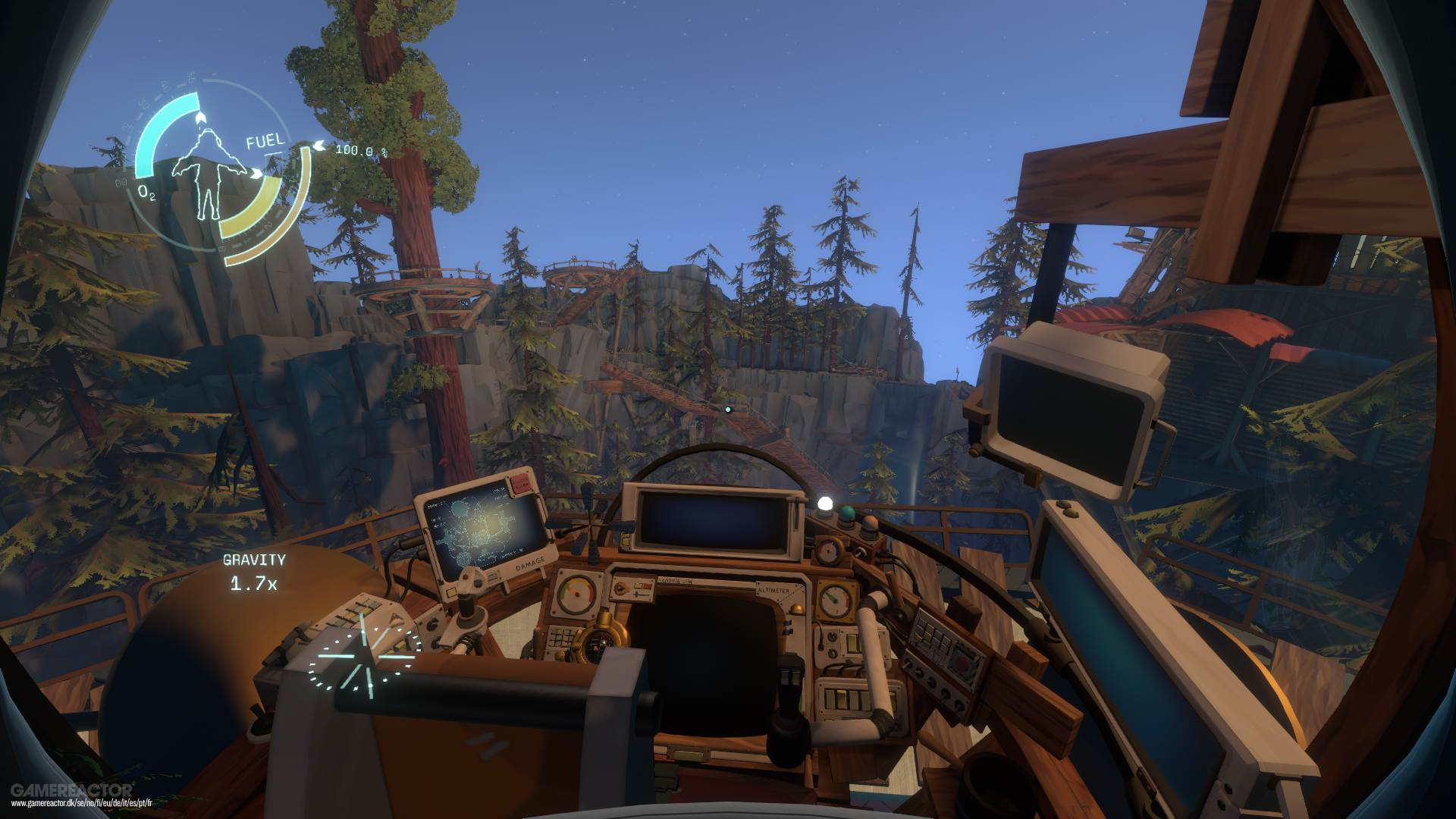
Of course, that's not quite true. We find clues everywhere and we can look at everything we see. In this sense, I would describe Outer Wilds as a No Man’s Sky in Sea of Thieves-style. Or as what No Man’s Sky wanted to be at the beginning - a universe to be discovered. Since exploring and understanding Outer Wilds is the core of the game, there's not much I can say without giving anything away.
Nevertheless, I don't want to write this review for its own sake, but to express some substantial criticism. To do so, I cannot avoid a few spoilers. If you don't want to know anything about the game and fancy a sandbox, exploring and navigating the universe and reading a lot, you will enjoy Outer Worlds . However, if, like me, you like being led from quest marker to quest marker, you might have your problems with the game ... and I'll get to them now. Because in my opinion, this very well-done adventure is unfortunately not entirely flawless.
Spoiler
Even though the game comes across as rather ominous at the beginning, we quickly understand what Outer Worlds is actually about: the universe is trapped in a time loop and we have to find out why. We have 22 minutes to do this. 22 minutes to visit the different locations, solve puzzles and find clues before we wake up at the campfire again.
The premise is really cool and stylishly staged, but once we understand these technical constraints, I think the game loses a bit of its magic. Because as we search for the clues, we have to read through a lot of dialogue from the previous civilization and figure out how the locations are connected. Fortunately, there is a logbook that presents the information clearly. However, we don't get everything chewed up and have to do our own research to uncover the secret of the Nomai.
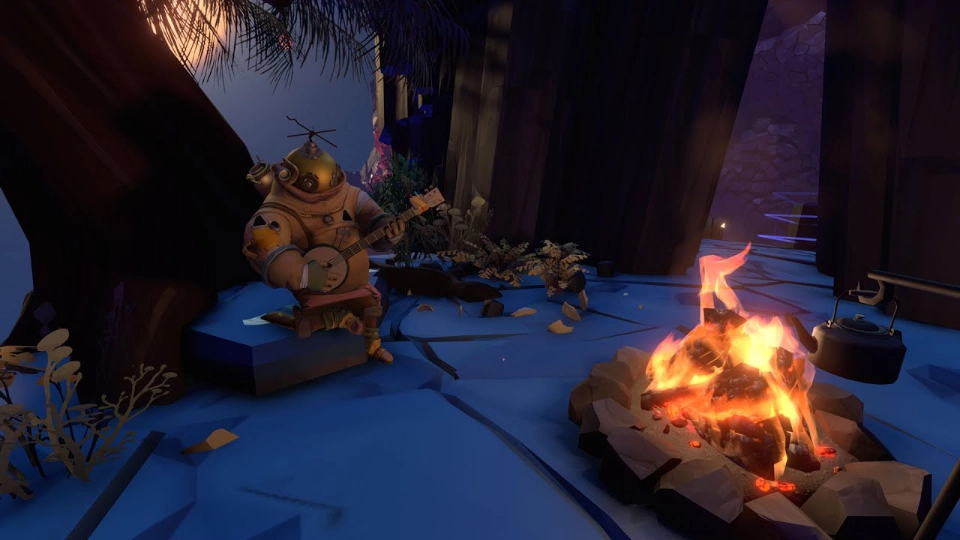
In order to find aforementioned information, we have to solve more or less difficult puzzles, follow clues and use gadgets. This is a lot of fun, especially at the beginning, and Outer Wilds benefits from the fact that it is not too packed. The atmosphere also does the rest. For example, although the game simulates space travel in a simpler form, we are subject to Newton's laws of inertia on our journey.
We use the thrusters of our spaceship and spacesuit to move through the void of space. What seems a little unfamiliar at first is forgotten after the first half hour at the latest and hopping across planetary surfaces or docking precisely at stations becomes routine. Any injuries or damage sustained during these explorations can be easily repaired on and in the ship. Our oxygen and jet reserves are also replenished there.
However, despite the low level of difficulty, frustration can arise, for example if we overlook something or are caught up in the loop in the middle of an exploration tour. After all, this means repeating the whole process - there is no manual saving. This can be annoying, especially at the beginning when we don't yet know what's relevant, and is probably my biggest criticism of the game.
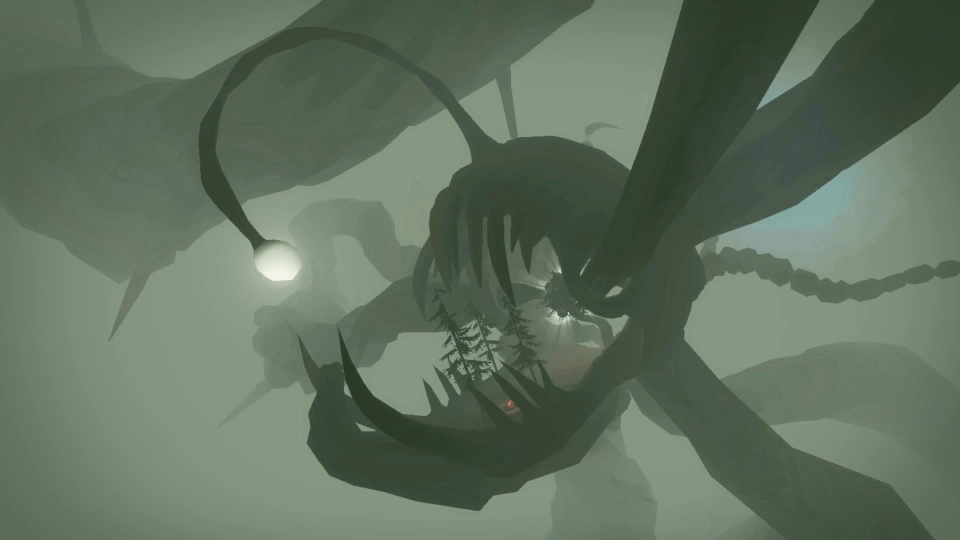
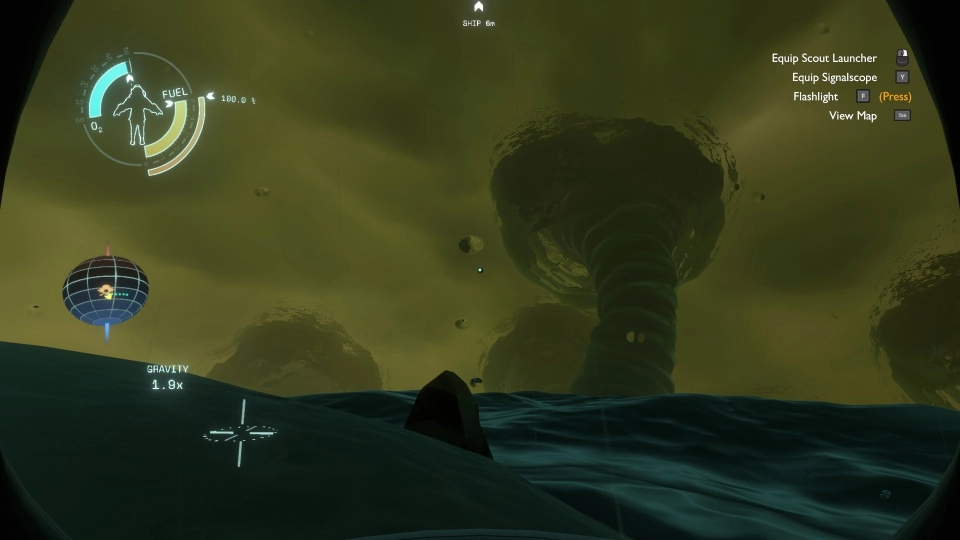
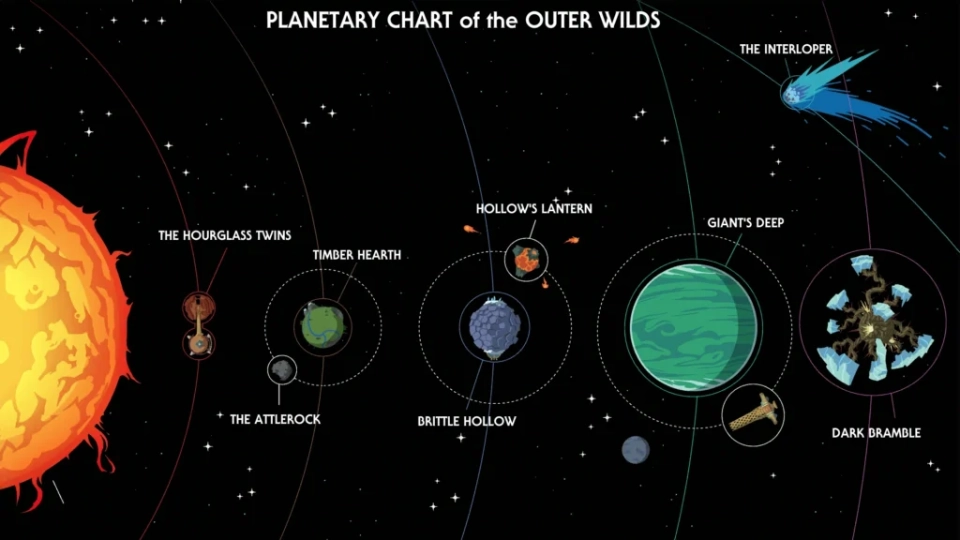
On the other hand, Outer Worlds rewards our urge to explore and offers charming stories and locations that are still captivating on the 10th visit. In general, you can't tell that the game was programmed by a young studio that has only released two mobile games in its short history (six years since 2019). Mobius Digital has written a little declaration of love to the genre of space exploration games here, because even if Outer Wilds seems quite arcadey, flight physics and gravity 'ground' the whole thing in reality.
There is also an eye for detail: the planets and stations we visit are wonderfully creative and in some cases beautiful to look at - and run smoothly almost all the time! Of course, there is a bit of trickery in places, but the technical framework on which the astronaut adventure is based seems absolutely solid. The graphics are coherent and match the rather childlike style, and there's nothing to complain about on the soundtrack front either.
So everything is great? Actually, yes. And yet the media scholar in me has to grumble a little and throw around terms like 'ludonarrative dissonance', i.e. the “contradiction in content between the game mechanics and the accompanying narrative”. What do I mean by that? An example:
At the beginning of the 2013 reboot of Tomb Raider, the young Lara Croft, a timid archaeologist, gets shipwrecked and first has to self-medicate in the best survivalist manner. A few minutes after this eventful introduction, vulnerable and frightened, she is kidnapped by a native. She manages to free herself and, in an act of self-defense, kills a person for the first time in her life. Panic attack, existential crisis - the cutscenes show us all of this. But shortly afterwards, Lara is handed a bow and begins a killing spree across the entire island without batting an eye. In contrast to the introduction, the fact that we have just killed dozens of people doesn't seem to matter at all. This is where the story and gameplay drift apart, and this is exactly what Ludonarrative Dissonance describes.
Now, as already mentioned, the core of Outer Wilds is the 22-minute loop that needs to be explored and which catapults us back to the starting point of the game again and again. Of course, there is basically no narrative in this sandbox, but the idea is that we write our own story. Now, in my world, I am a brave explorer who faces the dangers of the universe and fearlessly travels through space. But is it worth traveling to the next planet when I see that I only have four minutes left on the clock, for example? So what can I do? I could fly to one of the campfires and rest there to fast-forward the time, but I'd have to find that first.
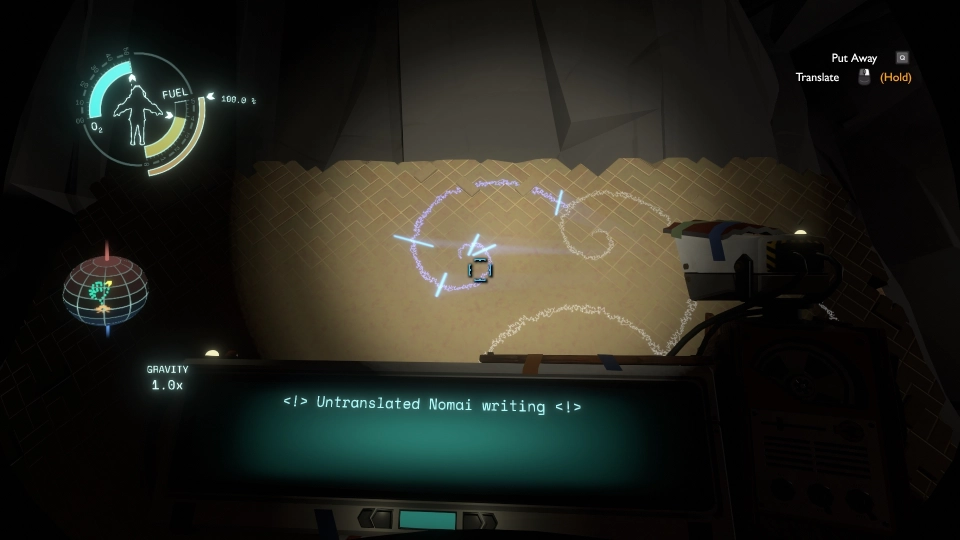
Or I can kill myself: a deep fall, a trip into the sun or a space walk without a suit - it all works equally well. In this way, I can start a new loop within the game world ... and only in this way. Of course, I can still make my way and get reset in the middle of my exploration - but what's the point? To make me feel even more rushed than I already am with a 22-minute time window and possibly having to repeat my progress? A quick restart would be better. Well, I could of course just go to the main menu, but that feels wrong. The fact that, as far as I know, there are only these options to force a 'fresh' start annoys me.
Of course, I understand the developers' approach and I still think the premise is cool, but I would have liked a cleverer solution to have been found. Because my astronaut, or so I think, opting for an agonizing suicide, is completely at odds with the actual idea of surviving in space. Maybe I'm being a bit overcritical here and it's purely a me-problem. But that's what this review is for, my opinion.
My other important point of criticism is the constant time pressure mentioned above. Because in those 22 minutes, something happens at every location, and many things are only possible in a certain time window. So not only do I constantly have the clock on my back, I also have to do some things at time x. This ensures that we find things on the planets that we may have missed on our first visit. Conversely, there is always the feeling that we have to be as efficient as possible and at the same time we ask ourselves whether we have really discovered everything.

Bottom line
Is this reason enough for me not to recommend Outer Wilds? Of course not! This game deserves to be played and should be a well-spent penny for an up-and-coming developer studio for anyone who has a taste for space fantasy. Conversely, if you're not into sandboxing, time pressure, text browsing or space in general, you'll probably be disappointed... but then why have you read this far?
